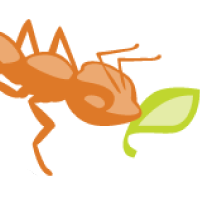 Students, and much of the general public, have trouble understanding what makes a good scientific experiment, and changing that is a major goal of introductory science classes. But to learn, students must practice designing their own experiments, and get feedback on their designs. There are too few opportunities for that cycle in the large introductory biology classes that most of our students take.
Students, and much of the general public, have trouble understanding what makes a good scientific experiment, and changing that is a major goal of introductory science classes. But to learn, students must practice designing their own experiments, and get feedback on their designs. There are too few opportunities for that cycle in the large introductory biology classes that most of our students take.
That’s why we’re really pleased to announce a new National Science Foundation grant just awarded to SimBio, in collaboration with researchers at the Massachusetts Institute of Technology, Cal State Fullerton, and Boston College, to research ways of providing immediate feedback on the experimental process within virtual labs like SimBio’s. We’ll be focusing first on our Darwinian Snails lab. For those that haven’t used it, Darwinian Snails teaches students about the assumptions behind natural selection. In the final exercise, students design and carry out their own experiments to test whether a difference between two populations is due to natural selection. Currently, students do their experiments, write the results as a research paper, and then must wait for comments back from their instructors. While we’ve shown that Darwinian Snails is valuable for helping students understand natural selection, it would obviously be much better if students, and their instructors, could receive instant feedback on whether they conducted good experiments.
That’s what the grant will focus on. We’ll record what students are doing as they use the lab, and importantly, change the lab itself to make it easier to identify common student confusions in conducting experiments. We’ll then develop algorithms for using students actions within the simulation to provide instant feedback on three aspects of their experiments – the experimental design, data analysis, and conclusions. Students will be able to use the feedback try a new experiment right away. Lots of educational research has shown that such instant feedback loops are a real boon to learning. Instructors will also get immediate feedback on where their students are having trouble so they can target those areas with impromptu lectures or individual help.
This is a four year project, and we’ll be looking for help throughout from classes that are willing to try early versions of the technology in revised Darwinian Snails labs. If you use Darwinian Snails, we’ll certainly be in touch about that. And if you use other of our labs, we hope to incorporate pieces of this technology as we finish them throughout our whole suite of labs and chapters.
SimBio is run by a bunch of biologists, so research is in our blood. We’re very excited at the possibilities that this new educational research project has for improving how students learn biology. I’ll write more as we start getting results.








